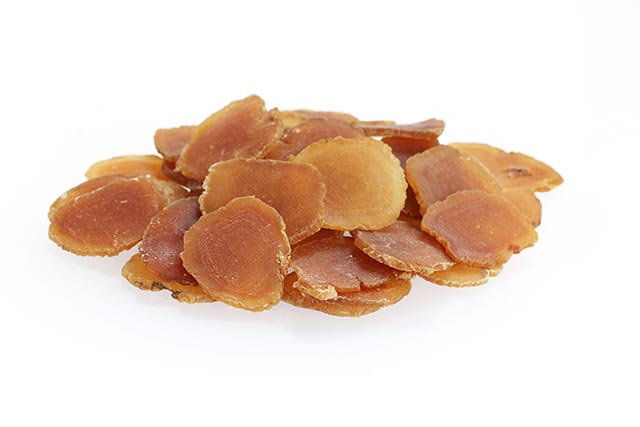What you need to know about curcumin and its health benefits
08/26/2019 / By Melissa Smith

Turmeric is a bright yellow spice that is not only widely used for culinary purposes, but also for medicinal uses. The health benefits it offers can be attributed to its active ingredient, curcumin. It makes up two to five percent of dry turmeric spices and gives the spice its yellow color. Curcumin acts as an anti-inflammatory and an antioxidant. Adding turmeric to your diet can do wonders for your health.
Curcumin and brain health
One of the health benefits you can get from consuming curcumin is that it can keep the brain healthy and fight brain diseases through different mechanisms. In pre-clinical and animal studies, curcumin has been shown to enhance the activity of brain-derived neurotrophic factor (BDNF), which is a key signaling factor that promotes the growth and strengthening of new connections between brain cells. This is important for maintaining cognitive and memory skills.
In addition, clinical and laboratory data reported that curcumin may prevent or even reverse underlying features of the most common age-related brain disorders, such as Alzheimer’s disease, Parkinson’s disease, stroke, and brain cancer. A review of studies published in the journal Molecules reported that curcumin can potentially prevent neurodegeneration and Alzheimer’s disease.
These age-related brain disorders are known to bring oxidative stress and inflammation, and curcumin is well-known for its ability to fight both. Moreover, curcumin helps improve learning and memory.
Several pre-clinical studies also revealed that curcumin can enhance the outgrowth of neurites, which are nerve-cell projections that later turn into new cell-to-cell connections that facilitate plasticity. Lab and clinical studies also showed that curcumin may help beat depression.

|
Discover how to prevent and reverse heart disease (and other cardio related events) with this free ebook: Written by popular Natural News writer Vicki Batt, this book includes everything you need to know about preventing heart disease, reversing hypertension, and nurturing your cardiac health without medication. Learn More. |
Curcumin and cancer
Among the many foods that can help fight cancer, curcumin stands out because it uses multiple ways to fight the disease. Its antioxidant properties protect cells from damage that can cause cancer in the first place. While there is insufficient evidence to conclude that curcumin prevents or treats cancer, some research has shown promising results.
For example, a study published in The AAPS Journal showed that curcumin can destroy various types of cancer cells in multiple ways. Most notably, it only targets cancer cells and leaves healthy cells unaffected, unlike chemotherapy drugs that kill cells indiscriminately.
Scientists also looked at turmeric as a way of preventing cancer. In an animal study, rats were exposed to cancer-causing substances and then treated with turmeric. According to the Memorial Sloan Kettering Cancer Center, these rats did not develop colon, skin, or stomach cancers.
Curcumin works by reducing the activity of receptors that promote tumor growth. It can reduce the number of new blood vessels that are created by tumors, depriving them of the blood they need to thrive. Additionally, it can restore normal programmed cell death (apoptosis) and prevent DNA damage caused by radiation and other toxins.
Moreover, curcumin also reduces the ability of cancer to metastasize by decreasing the production of the adhesion molecules that tumors require to stick themselves to vessel walls. It also aids cancer cells to move along these walls faster to reduce the chances that they will settle in place and take over.
Curcumin and pain
As mentioned earlier, curcumin acts as an anti-inflammatory herb. For this reason, it can be used to relieve arthritis or chronic joint pain. One study, which was published in the journal Phytotherapy Research, compared the effectiveness of curcumin supplements and a prescription pain reliever on rheumatoid arthritis symptoms. The results showed that patients who took curcumin supplements experienced greater improvements in their condition than those who took a pain reliever drug.
The only downside to curcumin is that it is not easily absorbed by the body. You need to consume it with black pepper or a fat, such as avocado, sunflower oil, or olive oil to improve its absorption and bioavailability.
Sources include:
Tagged Under: alternative medicine, anti-inflammatory, anticancer, antioxidant, arthritis, brain function, brain health, cognitive health, curcumin, dementia, depression, disease treatments, food cures, food is medicine, functional food, grocery cures, herbal medicine, Herbs, inflammation, joint pain, medicinal plants, natural cures, natural healing, natural health, natural medicine, pain relief, prevention, remedies, spice, supplements, tumors, turmeric



















